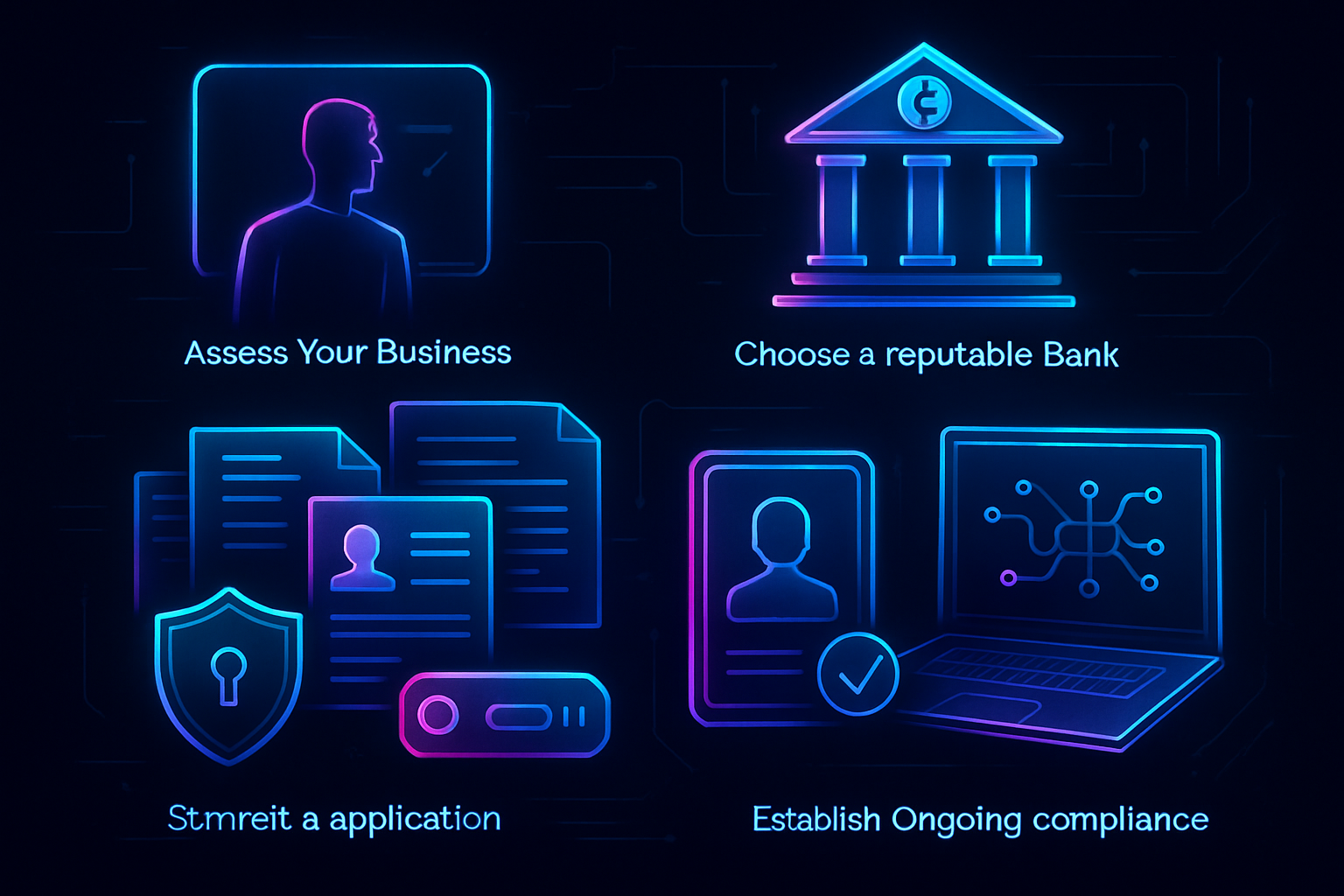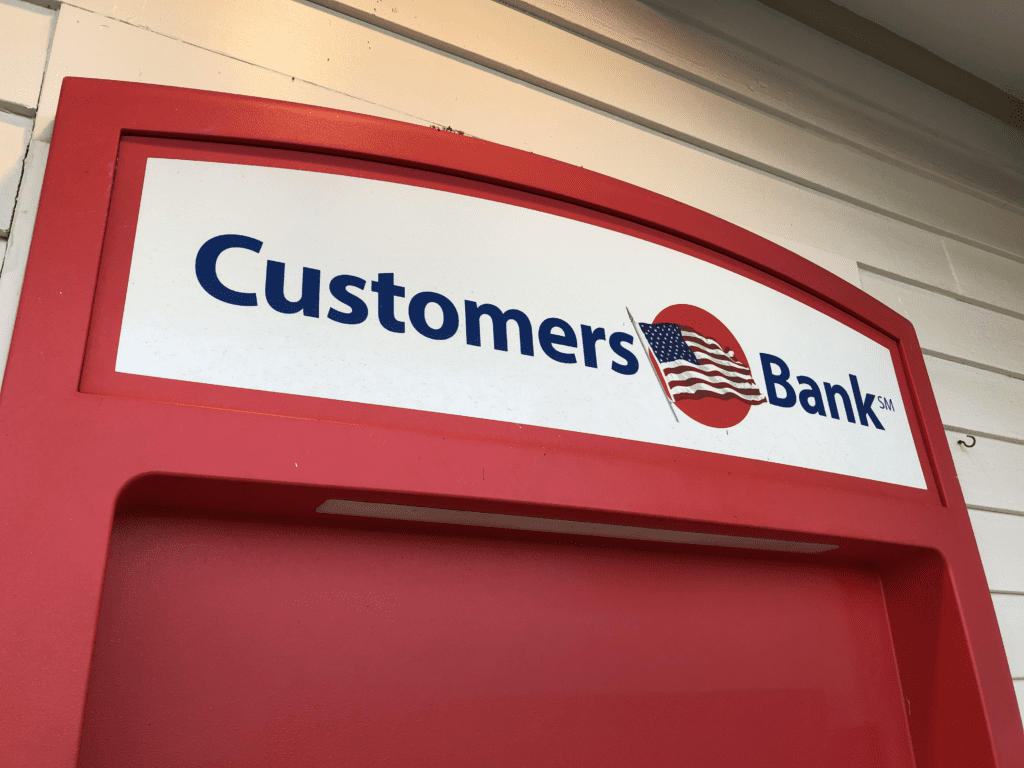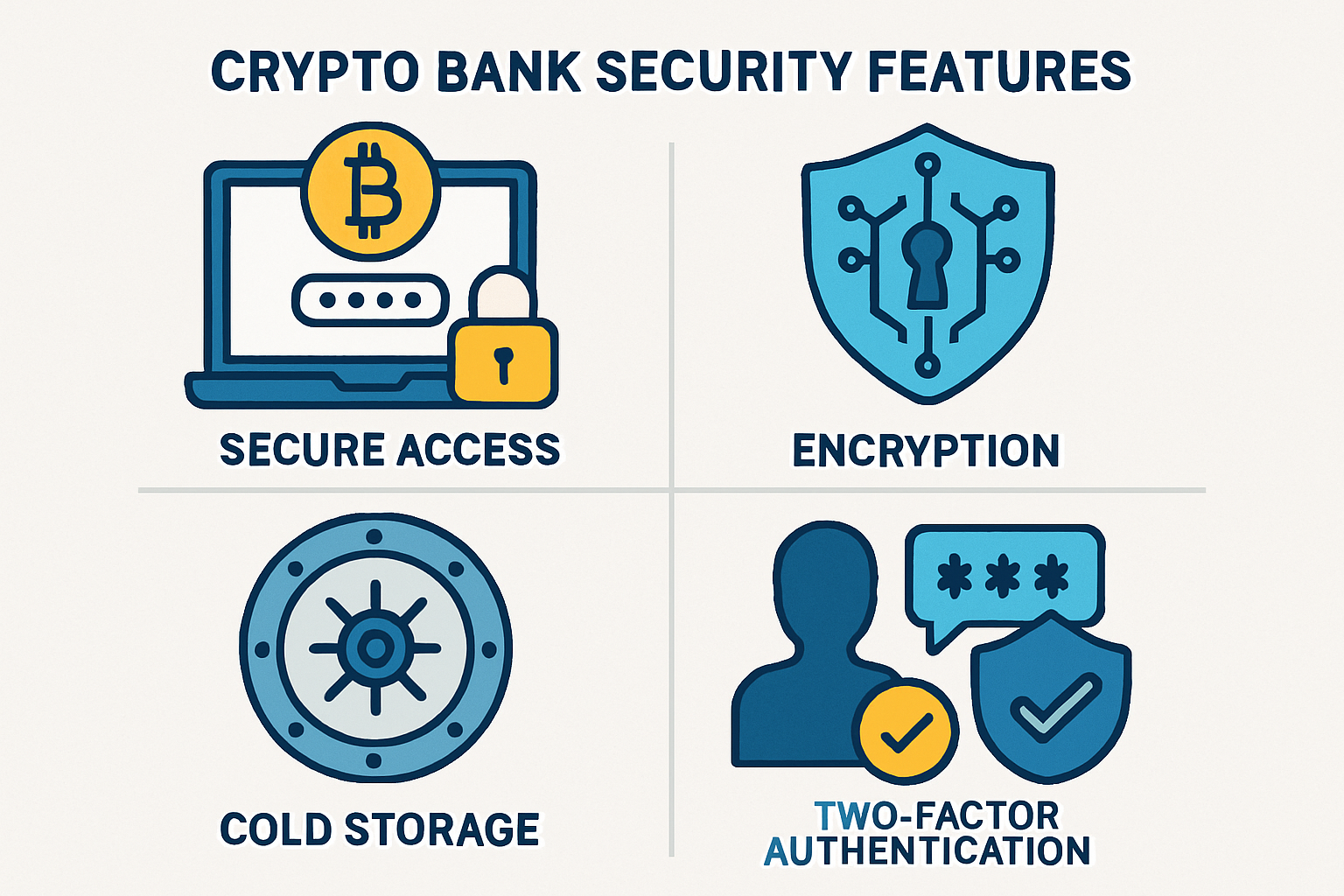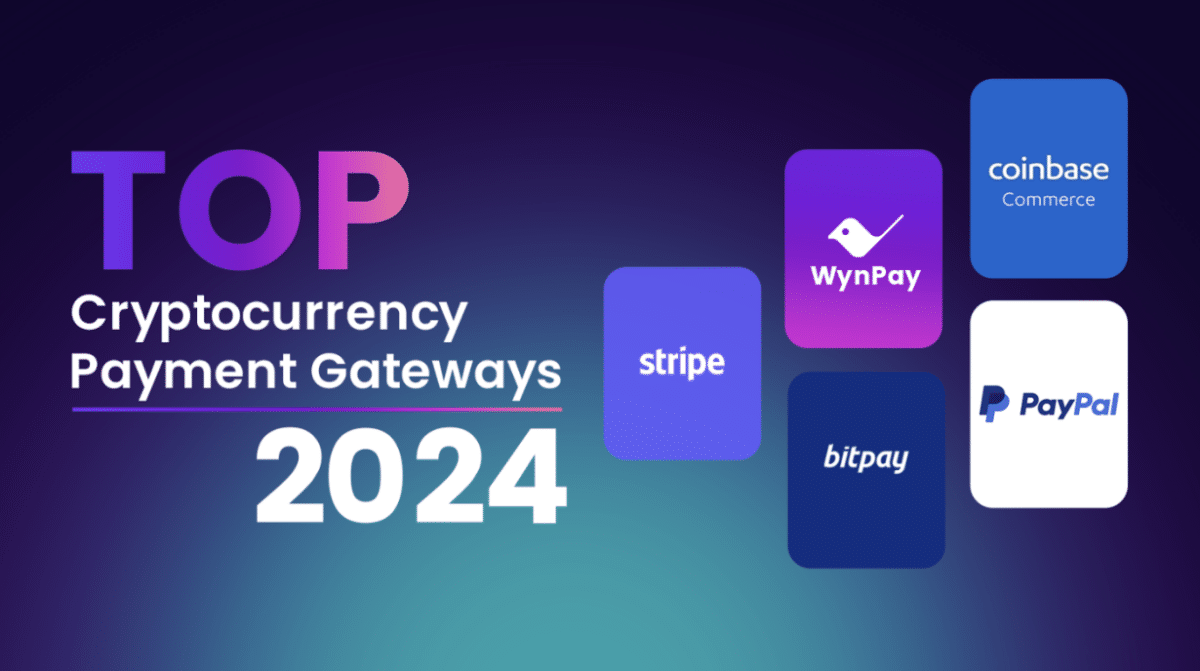
Setting up a crypto business account in 2024 is no longer a fringe move – it’s essential for any company that wants to stay agile and competitive in the digital economy. With regulatory clarity improving and crypto adoption accelerating, more businesses are seeking secure, compliant ways to manage digital assets, accept crypto payments, and streamline cross-border transactions. But opening a crypto business account isn’t as simple as signing up for a personal wallet. It’s a multi-stage process that demands careful planning, airtight documentation, and a keen eye for compliance. Let’s break down the five critical steps you need to follow to open a crypto business account this year.

1. Assess Your Business Needs and Choose a Reputable Crypto Bank
Before diving into paperwork, get clear on what your business actually needs from a crypto bank. Are you looking for seamless crypto-fiat conversion, multi-currency support, or robust custody solutions? Maybe your priority is tight integration with DeFi protocols, or just the ability to pay global contractors in stablecoins. Each crypto bank has its own strengths, fee structures, and supported assets, so do your homework.
Don’t just chase the biggest brand – focus on banks with a proven track record in crypto compliance, transparent fee schedules, and responsive customer support. U. S. Bank, for example, is emerging as a solid choice for U. S. -based crypto businesses, offering internal custody services and zero monthly maintenance fees on their Business Essentials Checking account. If you’re operating internationally, compare options carefully to ensure your chosen bank aligns with your regulatory environment and business model.
Top Features to Look for in a Reputable Crypto Bank
-

Assess Your Business Needs and Choose a Reputable Crypto BankStart by identifying what your business requires—such as multi-currency support, integration with major exchanges, and robust compliance tools. Look for established banks or platforms like Silicon Valley Bank (for tech and crypto businesses), Signature Bank (known for its Signet payment platform), or Silvergate Bank (a leader in crypto banking solutions).
-

Prepare Required Documentation (KYC, KYB, Business Registration, Compliance Records)Gather all necessary documents, including Articles of Incorporation, Employer Identification Number (EIN), government-issued IDs, and proof of business address. Banks like U.S. Bank and Mercury require strict KYC/KYB checks to ensure compliance with regulations.
-

Submit an Application and Complete Identity Verification ProcessesApply online or in person, providing detailed information about your business operations, ownership, and crypto activities. Reputable banks such as Revolut Business and Fidor Bank offer streamlined digital onboarding and robust identity verification.
-

Set Up Account Security Features (Multi-Signature, 2FA, Access Controls)Enable advanced security options like multi-signature wallets, two-factor authentication (2FA), and granular user access controls. Platforms such as Fireblocks and BitGo are trusted for institutional-grade security and custody solutions.
-

Integrate Crypto Payment Solutions and Establish Ongoing Compliance MonitoringConnect your account to leading payment gateways like Coinbase Commerce or Triple-A for seamless crypto transactions. Set up real-time compliance monitoring using tools such as Chainalysis or TRM Labs to stay ahead of regulatory requirements.
2. Prepare Required Documentation (KYC, KYB, Business Registration, Compliance Records)
Crypto business account requirements are more rigorous than ever thanks to evolving regulations like the Corporate Transparency Act (CTA), which came into force on January 1,2024. Expect banks to request:
- Business formation documents (Articles of incorporation, partnership agreements)
- Employer Identification Number (EIN)
- Government-issued IDs for all beneficial owners
- Business license and proof of address
- Compliance records (AML/KYC policies, transaction history if applicable)
Accuracy here is non-negotiable. Incomplete or outdated documents will stall your application or lead to outright rejection. Make sure every record is current, matches your registration status, and reflects the true structure of your company. For more on what’s required, check out this step-by-step documentation guide.
3. Submit an Application and Complete Identity Verification Processes
Once you’ve gathered your documents, it’s time to apply. Many crypto banks let you start this process online, but some may require an in-person visit depending on your jurisdiction and risk profile. Be prepared to provide granular details about your business operations, sources of funds, expected transaction volumes, and your intended use of cryptocurrencies.
Identity verification is where most delays happen, as banks must meet strict Know Your Customer (KYC) and Know Your Business (KYB) standards. This means providing not just your own details, but those of all significant shareholders and directors. The process can take anywhere from a few days to several weeks, especially if your business model involves higher-risk activities like trading or DeFi integration.
Stay patient, responsive, and proactive during this stage – prompt replies to any requests for clarification can make the difference between quick approval and frustrating delays.
4. Set Up Account Security Features (Multi-Signature, 2FA, Access Controls)
Once your application is approved, don’t rush to start transacting. The next critical step is configuring robust security for your crypto business account. With digital assets, security is everything, one lapse can mean irreversible losses. Start by enabling multi-signature authorization for outgoing transactions. This means multiple team members must approve transfers, dramatically reducing the risk of internal fraud or external hacks.
Layer on two-factor authentication (2FA) for all account logins and sensitive actions. Many crypto banks also let you set granular access controls, so only authorized personnel can view balances, initiate payments, or access reporting tools. Consider restricting withdrawal permissions to a select few and requiring dual approval for large transfers. These features aren’t just best practices, they’re often mandatory for compliance and insurance purposes.
Security isn’t a one-and-done deal. Regularly review your access logs and update permissions as your team or business structure evolves. Remember, in crypto banking, proactive security is your best insurance policy.
5. Integrate Crypto Payment Solutions and Establish Ongoing Compliance Monitoring
With your account secured, it’s time to unlock its full potential by integrating crypto payment solutions. Whether you want to accept Bitcoin, stablecoins, or altcoins from clients, most top crypto banks offer plug-and-play payment gateways or API integrations. This lets you add crypto checkout to your website or automate invoicing in digital assets. Some platforms even auto-convert crypto payments to fiat, shielding your business from volatility.
But integration is only half the battle provides ongoing compliance monitoring is essential. Crypto banking compliance in 2024 is dynamic: regulations shift fast, and reporting obligations (like Beneficial Ownership Information under the CTA) are non-negotiable. Set up alerts for large or unusual transactions, ensure your AML/KYC policies are up-to-date, and schedule regular internal audits. Many crypto banks now offer built-in compliance dashboards or partner with RegTech firms to help you stay ahead of regulatory changes.
Top Crypto Payment Solutions & Compliance Tools for Business
-

Assess Your Business Needs and Choose a Reputable Crypto BankStart by evaluating your business model and transaction volume to determine the best crypto-friendly bank or platform. Leading options include Silvergate Bank (for U.S. businesses), Mercury (for startups), and Revolut Business (for global operations). These institutions offer robust support for crypto transactions and compliance.
-

Prepare Required Documentation (KYC, KYB, Business Registration, Compliance Records)Gather essential documents such as business registration certificates, Beneficial Owner Information (BOI) for FinCEN (per the Corporate Transparency Act), and compliance records. Use tools like Jumio or Trulioo for digital KYC/KYB verification to streamline onboarding.
-

Submit an Application and Complete Identity Verification ProcessesApply through the chosen bank or crypto platform, providing all required details. Platforms like Kraken Business and BitPay offer dedicated business onboarding with integrated identity verification and compliance checks.
-

Set Up Account Security Features (Multi-Signature, 2FA, Access Controls)Enhance security by enabling multi-signature wallets (e.g., BitGo), two-factor authentication (2FA), and role-based access controls. These measures are critical for protecting business funds and preventing unauthorized transactions.
-

Integrate Crypto Payment Solutions and Establish Ongoing Compliance MonitoringConnect your account with established payment gateways like Coinbase Commerce, B2BinPay, or Triple-A to accept crypto payments. For ongoing compliance, leverage platforms such as Chainalysis or Elliptic for transaction monitoring and AML checks.
Staying compliant isn’t just about avoiding fines, it’s about building trust with partners, clients, and regulators. As crypto adoption accelerates, those who treat compliance as a living process will be best positioned for growth.
What’s Next for Crypto Business Accounts?
The landscape for crypto business accounts in 2024 is more accessible, but also more demanding, than ever. Banks are upping their game with better services, but they’re also raising the bar for due diligence and ongoing oversight. Whether you’re launching a DeFi startup, an NFT marketplace, or just want to pay your global team in USDC, following these five steps will help you open, and maintain, a secure, compliant crypto business account.







